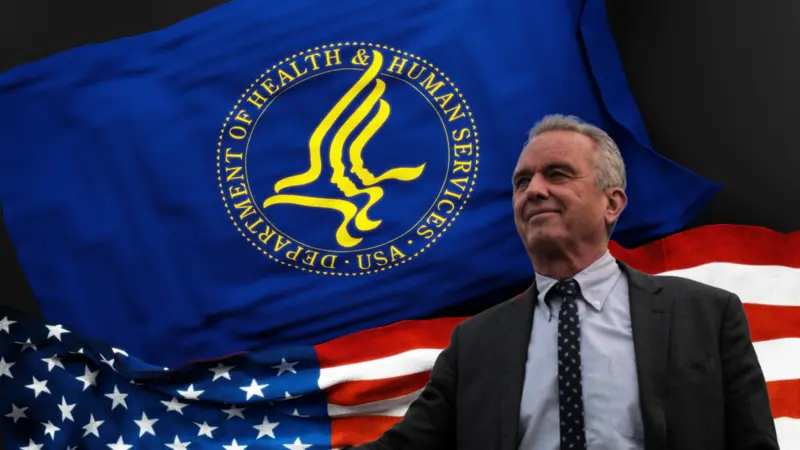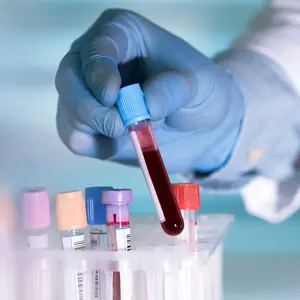

Industry News

Industry News
RFK Jr. Sworn in as HHS Secretary
Brenda Baletti, Ph.D., The Defender
This article was originally published by The Defender — Children’s Health Defense’s News & Views Website.
The U.S. Senate today voted to confirm Robert F. Kennedy Jr., founder and former chairman of Children’s Health Defense (CHD), as U.S. Department of Health and Human Services (HHS) secretary.
At press time, the vote was 51-48, largely along party lines, with almost every Republican supporting Kennedy’s nomination and all Democrats and independents opposing it.
Sen. Mitch McConnell (R-Ky.), the former longtime GOP leader, was the only Republican who joined the “no” votes.
CHD CEO Mary Holland said:
“Children’s Health Defense is thrilled that our founder Robert F. Kennedy, Jr. has been confirmed as the Secretary of Health and Human Services. It has been a long, tough and ultimately successful road.
“Bobby richly deserves this honor, and CHD is confident that he will make great strides toward the goals he has set for HHS: radical transparency, gold-standard science and making America healthy again.
“We look forward to reporting on HHS activity and advancing HHS objectives where appropriate. CHD will continue to focus on our piece of the American health puzzle: ending the epidemic of chronic childhood disease.”
As HHS secretary, Kennedy will oversee the largest budget — $1.8 trillion for fiscal year 2025 — of any federal agency.
HHS oversees 13 public health agencies, including the Centers for Disease Control and Prevention (CDC), the U.S. Food and Drug Administration (FDA) and the National Institutes of Health (NIH).
The agency, which employs 90,000, is also the largest federal grantmaker.
HHS also manages federally funded health insurance coverage and regulates private insurance. The agency sets policy for public health and disease control; coordinates emergency preparedness and response for natural disasters, health crises and other events; and oversees food and drug safety.
Kennedy suspended his own presidential campaign in August 2024 and agreed to join forces with then-presidential candidate Donald Trump to focus on “existential issues” for the American people, including ending the childhood chronic disease epidemic.
Some commentators speculated that Kennedy’s support was likely decisive in Trump’s win. After Trump won the presidential election in November 2024, he tapped Kennedy to lead HHS.
Since then, Kennedy has been one of Trump’s most contentious cabinet nominations, largely because of his positions on vaccine safety, his assertions that the public health agencies — and lead figures like Dr. Anthony Fauci — are captured by industry, and his public criticism of the COVID-19 vaccines and treatments.
Kennedy has been heavily censored on social media and relentlessly smeared in the mainstream media, and even by senators.
Before this morning’s vote, Democratic Senate Majority Leader Chuck Schumer addressed the Senate, saying, “I’m very proud that every single Democrat will oppose Mr. Kennedy’s nomination because Democrats know better than to elevate a conspiracy theorist to the top healthcare job in the country.”
He implored Republican senators to vote against him.
Kennedy’s confirmation hearing before the Senate Finance Committee on Jan. 29 lasted nearly four hours as Democratic senators grilled the lifelong Democrat on his “anti-vaccine” views, legal fees earned by suing drugmakers like Merck for injuries caused by their products, and whether he supported CHD’s sales of onesies imprinted with slogans like “UNVAXXED UNAFRAID.”
Kennedy denied he was anti-vaccine, insisting he was merely pro-safety and wanted to draw attention to the potential risks of vaccines. He focused his message to the committee on his plans to address the chronic disease epidemic — the central mandate of the Make America Healthy Again (MAHA) movement that backed his nomination.
He cited statistics showing sharp increases in cancer, diabetes, neurodevelopmental disorders, autoimmune diseases and other conditions since the 1960s. He said more than half of Americans today are chronically ill, calling this a “human tragedy” that is “writing off an entire generation of kids.”
Kennedy pledged to support healthy foods and the removal of harmful additives from the food supply. He also promised to rid HHS of the financial conflicts of interest that lead to compromised science and to restore research at HHS to “honest, unbiased, gold-standard science,” particularly related to vaccines.
Before the Finance Committee voted to advance Kennedy’s nomination, he won the essential support of Republican Sen. Bill Cassidy (R-La.), a doctor who had expressed concerns about some of Kennedy’s positions on vaccines.
Cassidy supported the nomination after he said Kennedy committed to meet or speak with him multiple times monthly, and to include Cassidy in the HHS hiring process.
Cassidy also said Kennedy agreed to maintain statements on the CDC website that vaccines do not cause autism and to maintain the recommendations of the CDC’s Advisory Committee on Immunization Practices.
As secretary, Kennedy will also work closely with the heads of HHS agencies. Trump in November nominated Jay Bhattacharya, M.D., Ph.D., professor of health policy at Stanford’s School of Medicine and vocal critic of COVID-19 lockdowns, to lead the National Institutes of Health (NIH).
Dr. Martin “Marty” Makary, a pancreatic surgeon at the Johns Hopkins School of Medicine, is Trump’s pick to run the FDA. Makary has been broadly supportive of the childhood vaccine schedule, but has questioned the benefits of certain shots, like the hepatitis B vaccine for newborns. He has also criticized vaccine mandates.
Dr. David Weldon, Trump’s pick to lead the CDC, served seven terms in Congress before returning to his Florida practice. He has spoken out about the use of thimerosal — an aluminum adjuvant — in vaccines, citing its link to autism.
This article was originally published by The Defender — Children’s Health Defense’s News & Views Website under Creative Commons license CC BY-NC-ND 4.0. Please consider subscribing to The Defender or donating to Children’s Health Defense.
Related stories in The Defender
- RFK Jr. Pushes Back on Chronic Disease, Autism and Agency Corruption
- Kennedy Calls for ‘Radical Transparency’ at Government Health Agencies, as Sanders Demands CHD Stop Selling Onesies
- ‘True Corruption’: Agency Capture Responsible for Chronic Disease Epidemic in U.S.
- ‘An Act of War’: Big Food Intentionally Addicting Kids to Toxic Foods
- From ‘Brilliant’ to ‘Aghast’: Reactions to RFK Jr.’s Nomination for HHS Secretary Run the Gamut
- Breaking: Trump Taps RFK Jr. to Lead U.S. Department of Health and Human Services









